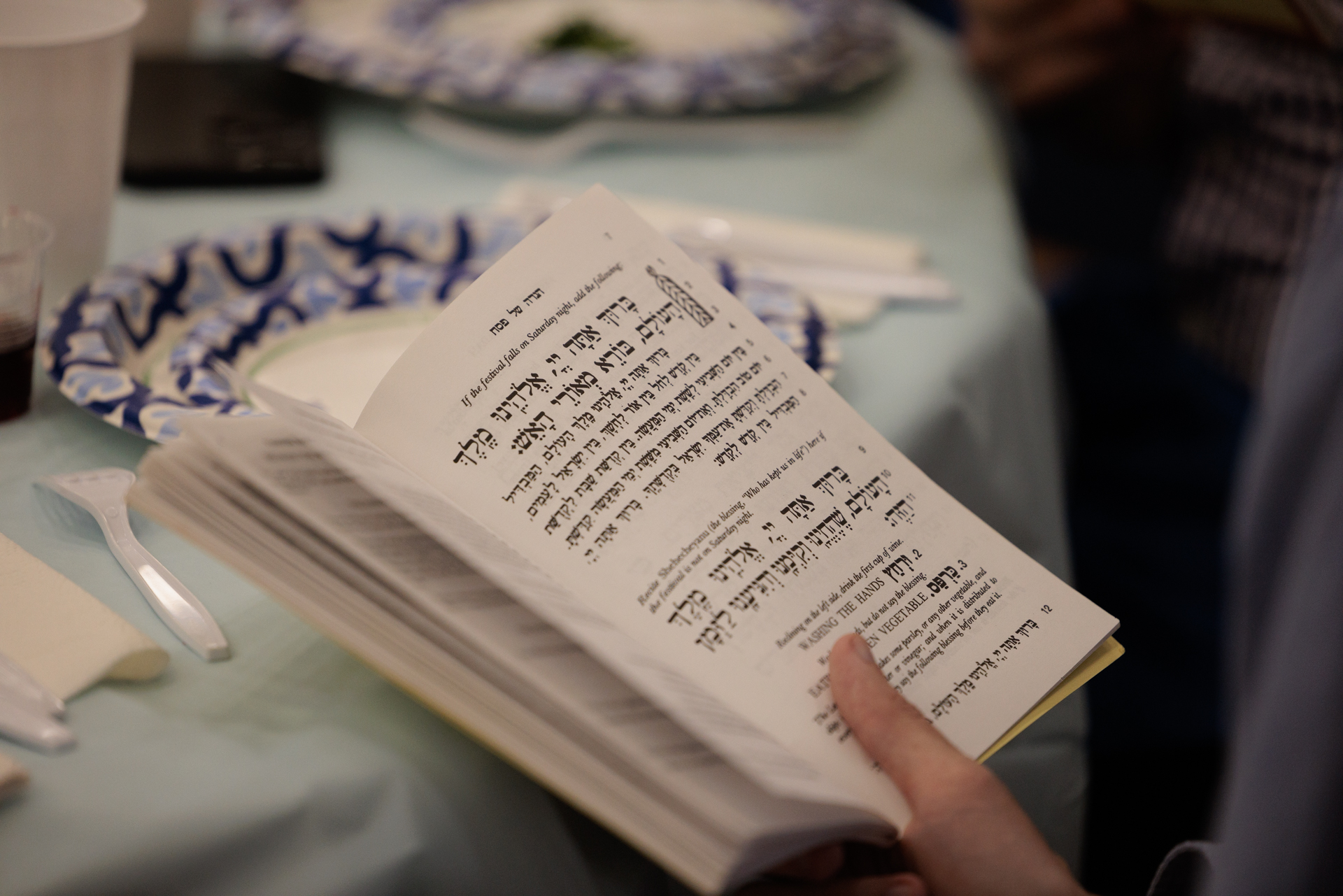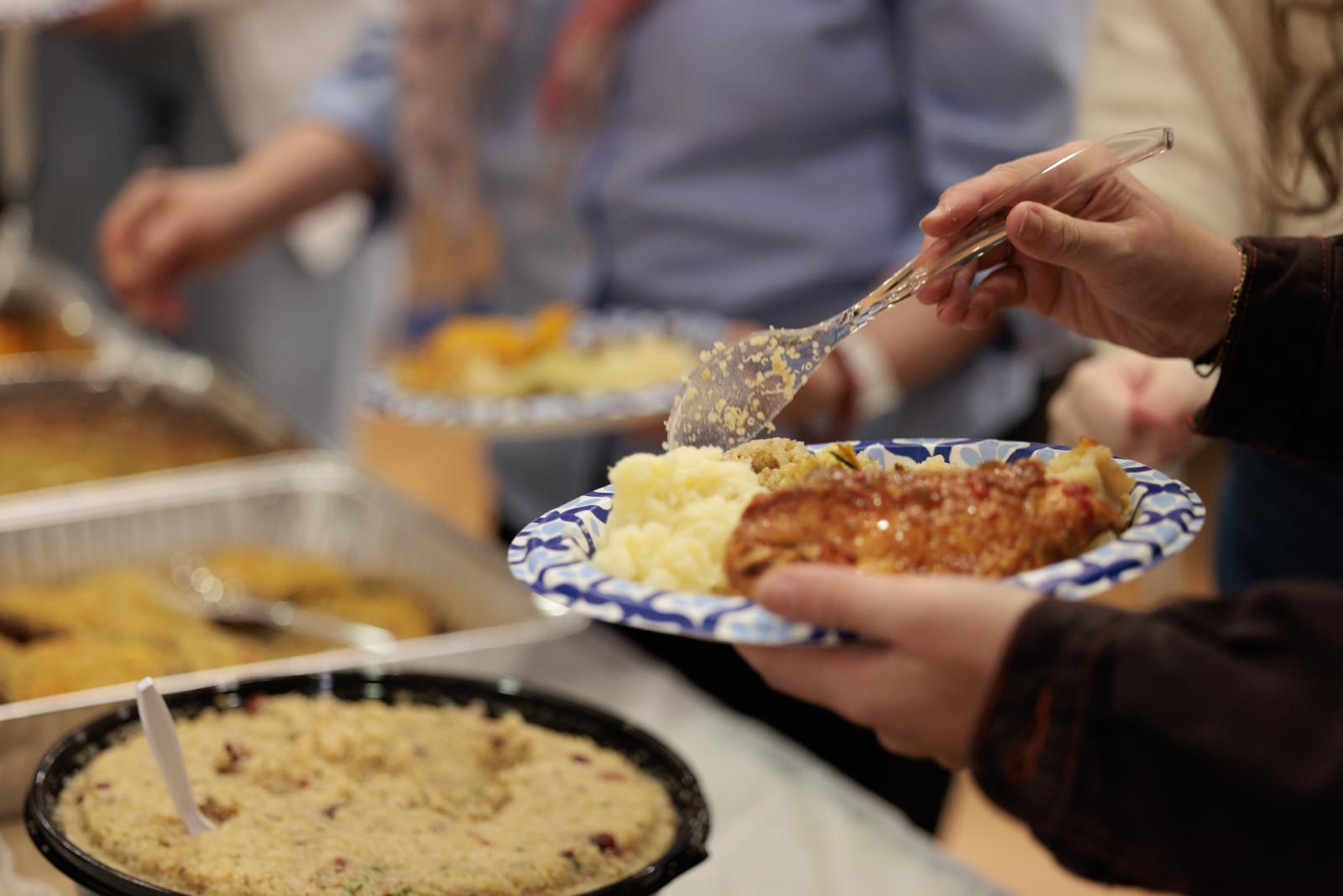Jewish students and community members at the George Washington University celebrate Passover this week, an eight-day holiday retelling the story of Jewish escape from enslavement in ancient Egypt.
Passover is held from the 15th to the 22nd of the Jewish month of Nissan, which this year falls April 22 to 30. Its name derives from the biblical story of the ten plagues of Egypt, in the last of which Jewish firstborn children were “passed over” and spared from death. For the full duration of the holiday, celebrants avoid food made with leavened grain to symbolize the haste with which enslaved Jews fled after being released.
Many celebrants hold a seder, a ritualized meal standardized by a guiding 15-step text called a Haggadah, on the first night or two nights of Passover. The Haggadah contains a basic retelling of the Book of Exodus, with psalms, blessings, commentary and ceremonial exchanges. During the retelling, participants eat symbolic foods in solidarity with those who suffered, both Jewish and Egyptian. This retelling is followed by a celebratory feast, traditional songs and games. For many Jews, Passover seders are a yearly touchstone of family life.
As in all holidays, of course, individual families adapt these customs to their own preferences. Jacob Wise, a junior in the School of Business, remembered his own family gathering for raucous, often theatrical seders in his hometown in Florida with an overflow of cousins, aunts, uncles and friends.
“We would extend our dining room table and put our folding tables out into the living room, and we always had almost too many people to fit,” Wise said. “It’s a holiday that really brings people together.”
Sean Shekhman, a sophomore in the Elliott School of International Affairs, remembered his own family hosting “misfit seders” in his mostly non-Jewish Connecticut community. Since his family didn’t regularly attend synagogue, the holiday provided an opportunity to reconnect with their faith. “We’d have all these family friends there, Jewish and non-Jewish, from all different backgrounds with a crazy mix of accents.”
For Shekhman’s grandparents, all of whom were the children of Holocaust survivors in Eastern Europe, Passover was also an opportunity to heal generational trauma through family togetherness and long-remembered ritual.
“Why did my grandparents drive 10 hours from Toronto to come down and celebrate with us? Well, partly because they want to see us, but also because on Passover we’re doing the same thing they did with their parents when they were going through their tough times,” Shekhman said.
The Division of Student Affairs (DSA) and GW Hillel hosted a joint seder at the University Student Center Monday evening, where about 120 people—including students, faculty, staff and alumni—gathered around tables in the Grand Ballroom to share food, stories and community.
Hillel Rabbi Dan Epstein, who led the service, urged participants to honor their own journeys and to hold hope for peace. The Haggadah doesn’t exactly retell the story of flight out of Egypt, he pointed out, but rather recounts five rabbis gathering to tell that story. It is the story of a story, and in that way is a reminder of the importance of storytelling itself. Narratives build bridges, both within the Jewish community on campus and between that community and the wider world. Special guest John Eaves, founder of Black and Jewish Leaders of Tomorrow, also stressed the importance of both unity and outreach.
Gali Laska, a senior in the Columbian College of Arts and Sciences and herself the daughter of a rabbi, said this large seder on campus was a balm for Jewish community members with no local family. When Laska, who is from San Diego, realized how difficult it felt not to be at home for the holiday this year, she texted Hillel executive director Adena Kirstein. Kirstein responded at once.
“She was so quick to say, ‘It’s at eight o’clock, and I have gluten-free matzah for you,’” Laska said. “I've been very lucky to have a great community at GW to celebrate with. It means being surrounded by people who have lived the same experience as you.”


















